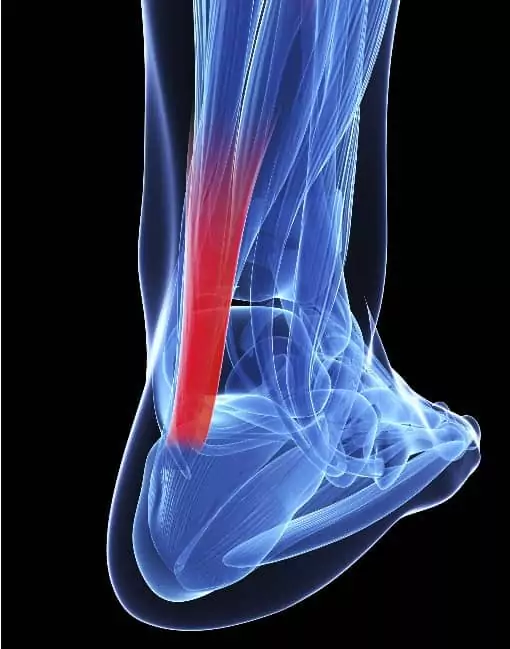CBD vs Other Products for Tendonitis: Tendonitis is a condition that causes pain and inflammation in the tendons, which are the fibrous tissues that attach muscles to bones. It is a common injury that can occur in any part of the body, but it most often affects the elbows, wrists, shoulders, knees, and ankles. Tendonitis can be caused by overuse, injury, or aging. There are many products available on the market that claim to relieve the pain and inflammation associated with tendonitis, but not all of them are effective. In this article, we will explore the benefits and drawbacks of using CBD vs other products for tendonitis.
Table of Contents
What is CBD?
Cannabidiol, or CBD, is a chemical compound found in the cannabis plant. Unlike tetrahydrocannabinol (THC), CBD is not psychoactive and does not produce a high. CBD has gained popularity in recent years for its potential health benefits, including its ability to reduce pain and inflammation. CBD products come in various forms, including CBD oils, CBD capsules, CBD gummies, CBD creams, and more.

CBD vs Other Products for Tendonitis
There are many products available on the market that claim to reduce pain and inflammation associated with tendonitis, including nonsteroidal anti-inflammatory drugs (NSAIDs), corticosteroids, physical therapy, and more. However, these products have their drawbacks. For example, NSAIDs and corticosteroids can cause side effects such as stomach ulcers, high blood pressure, and increased risk of infections. Physical therapy can be time-consuming and expensive, and not everyone has access to a qualified physical therapist.
CBD products, on the other hand, have fewer side effects compared to other products for tendonitis. CBD is generally well-tolerated by most people and does not cause any significant adverse effects. CBD products are also easy to use and can be applied topically or taken orally. CBD products are available in various strengths, so users can choose the product that works best for them.
Benefits of CBD for Tendonitis
CBD has been shown to have anti-inflammatory and analgesic effects, which can help reduce the pain and inflammation associated with tendonitis. CBD works by interacting with the body’s endocannabinoid system (ECS), which regulates various functions in the body, including pain, inflammation, and immune function. CBD can help reduce pain and inflammation by activating the endocannabinoid system and reducing the production of pro-inflammatory cytokines.
In addition to reducing pain and inflammation, CBD can also help improve sleep quality, reduce anxiety and depression, and improve overall well-being. Tendonitis can cause sleep disturbances, anxiety, and depression, which can exacerbate the pain and inflammation associated with the condition. CBD can help improve these symptoms, which can, in turn, reduce the severity of tendonitis.
Drawbacks of CBD for Tendonitis
While CBD has many potential benefits for the treatment of tendonitis, it is not a cure-all solution. CBD products can be expensive, and they may not be covered by insurance. CBD products also vary in quality, and some products may not contain the amount of CBD advertised on the label. In addition, CBD products can interact with other medications, so it is essential to talk to a healthcare provider before using CBD products, especially if you are taking other medications.
CBD vs Other Products for Tendonitis: Conclusion
CBD products have many potential benefits for the treatment of tendonitis, including their ability to reduce pain and inflammation. Compared to other products for tendonitis, CBD products have fewer side effects and are generally well-tolerated by most people. However, CBD products are not a cure-all solution, and they may not be suitable for everyone.
When choosing a CBD product for the treatment of tendonitis, it is essential to look for high-quality products that have been third-party tested for purity and potency. It is also essential to start with a low dose and gradually increase the dose as needed. It may take some time to find the right dose and product for you, so be patient and don’t give up.
CBD vs Other Products for Tendonitis: In summary, CBD products have many potential benefits for the treatment of tendonitis compared to other products, such as NSAIDs, corticosteroids, and physical therapy. CBD products have fewer side effects and are generally well-tolerated by most people. When choosing a CBD product, it is important to look for high-quality products that have been third-party tested for purity and potency. With the right product and dose, CBD can be a safe and effective treatment option for tendonitis.




[…] Tendonitis is a common condition that causes pain and inflammation in the tendons. CBD and NSAIDs are two popular options for managing the symptoms of tendonitis. But which one is better? Read on to find out. […]